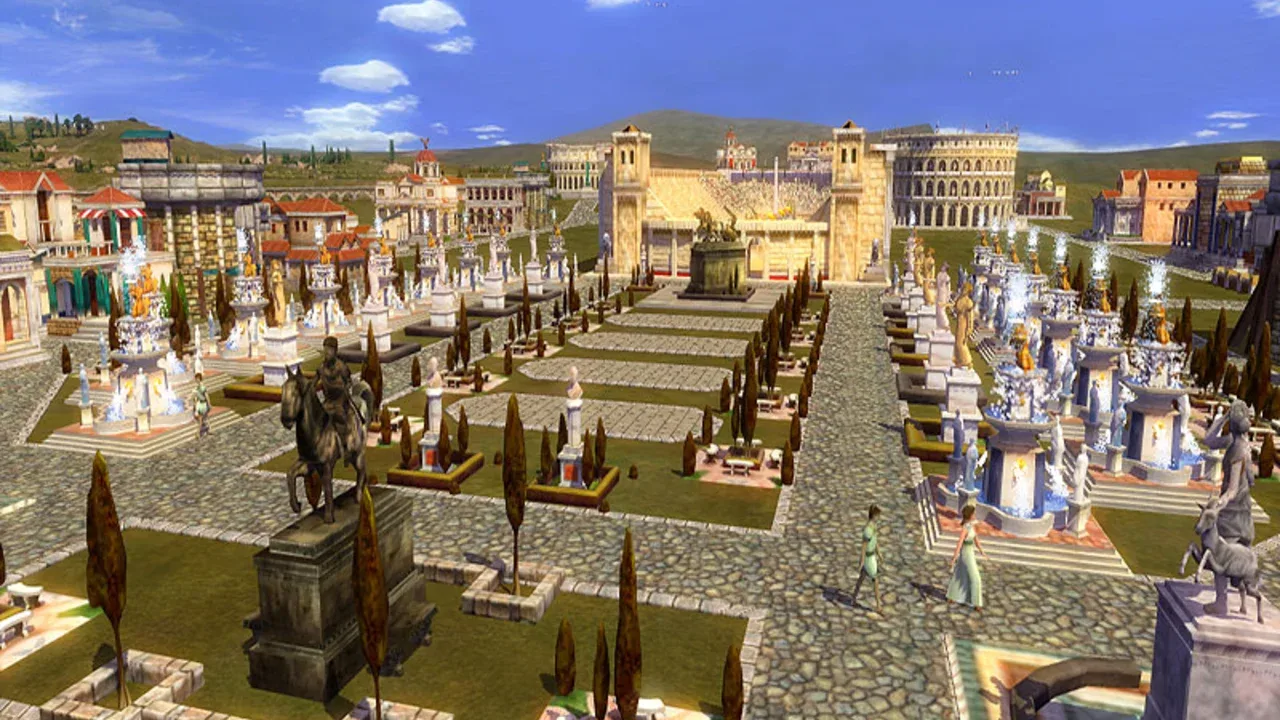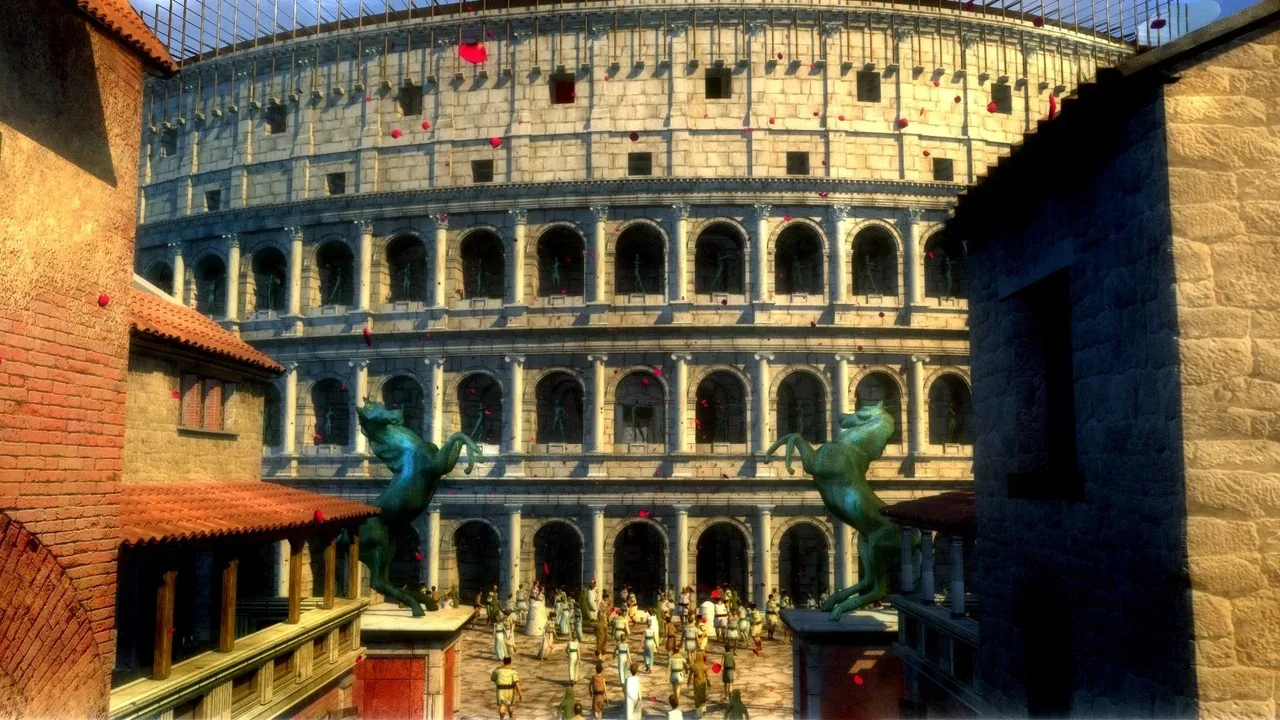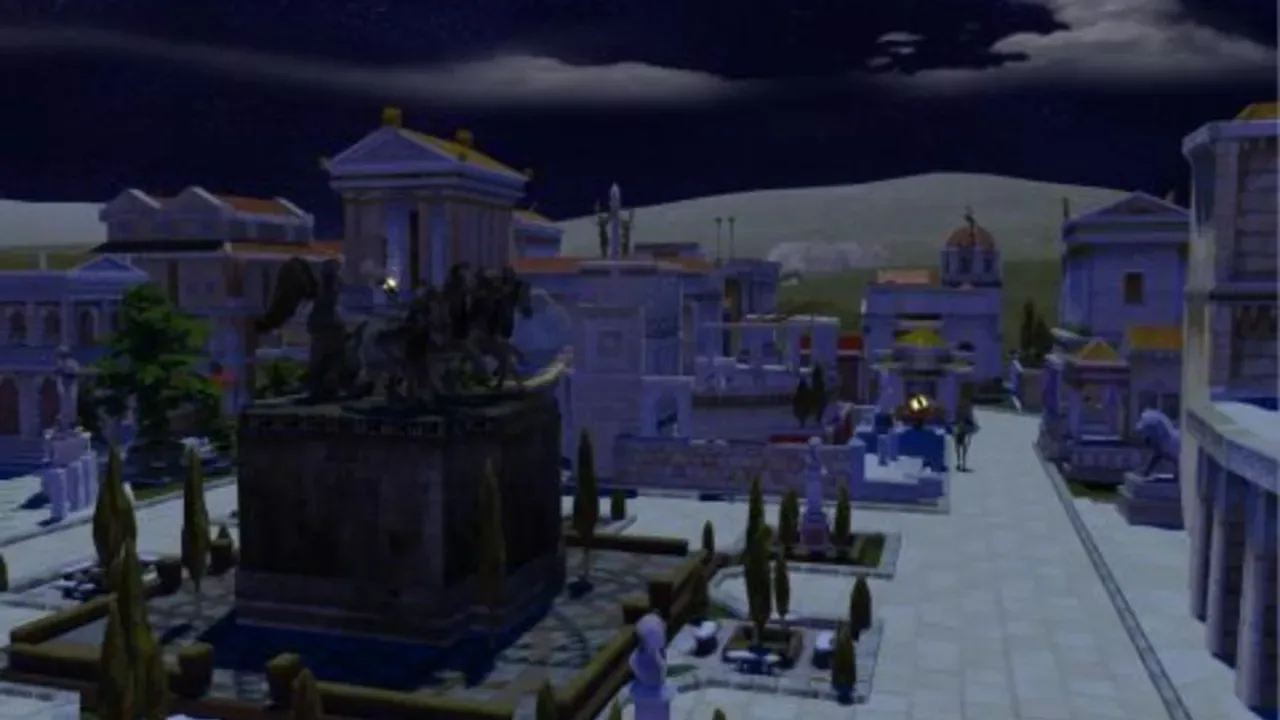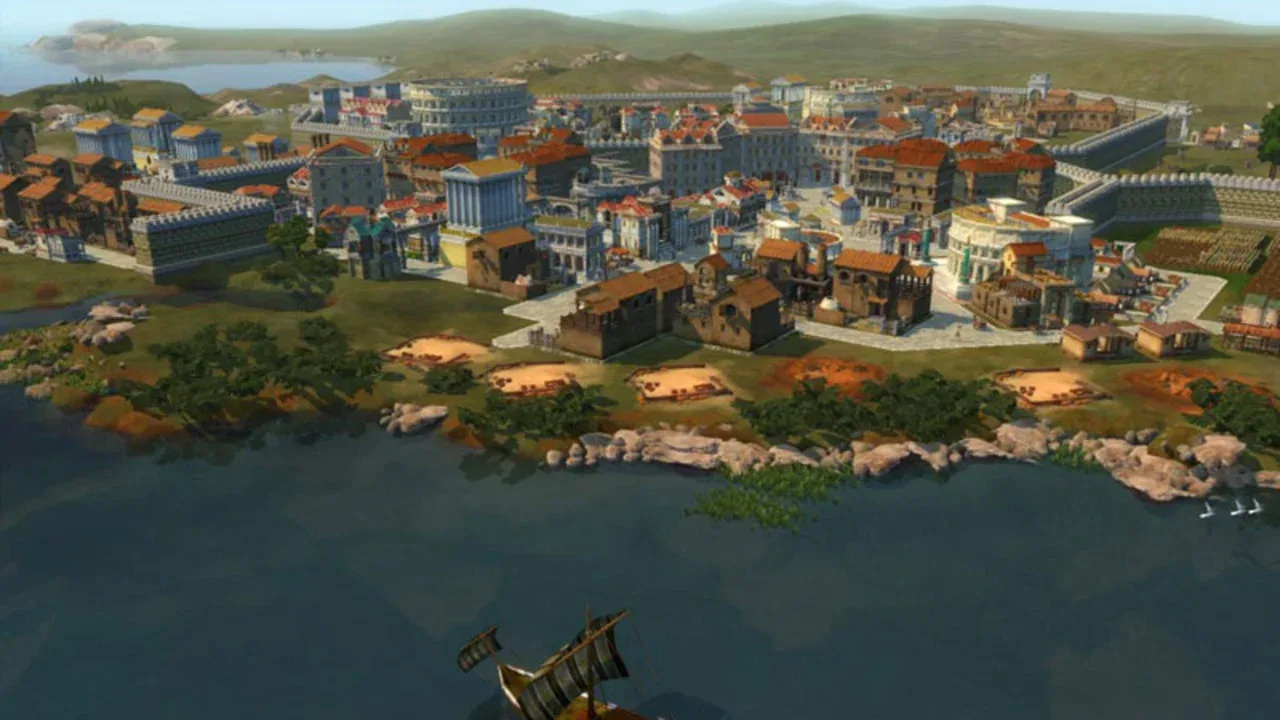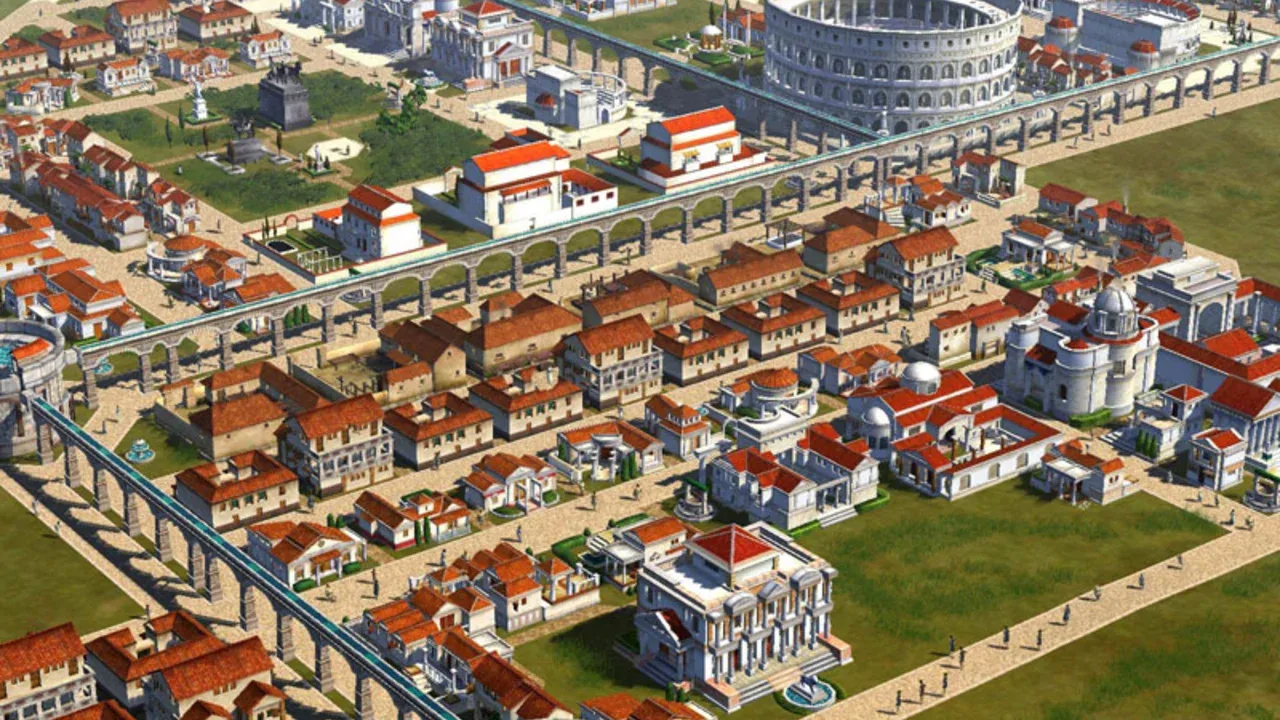Buy
Part of collection:
Caesar
(last 3 games)
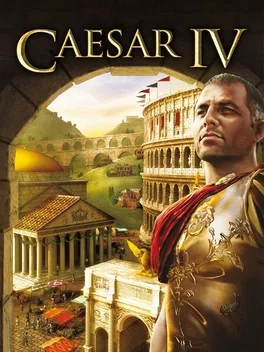
Starting as governor of a newly formed province in the Roman Empire your goal is simple: advance up the empire's political ladder to become the next Caesar.
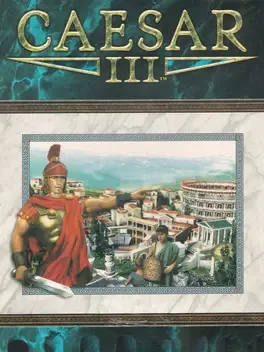
Caesar III is part of Sierra's City Building Series and was released in October 1998. Cities in Caesar III try to accurately reflect the life of Roman citizens: the lowest plebians live in tents and shacks, while the richest patricians live in villas. Staple foods include wheat, fruits, vegetables, and pork, and wine is required for some festivals and houses. Citizens wander the streets in their various garbs and can tell the player their name and how they feel about the city. The city is viewed in a two-dimensional isometric view with a fixed magnification level and can be rotated ninety degrees. Access to services such as market goods, entertainment, hygiene, education, and taxation are represented by "walkers," people sent out from their buildings to patrol the streets. Any house that a walker passes is considered to have access to the services of the walker's building. All movements of goods and coverage of walkers are accurately reflected by citizens walking the streets: a player can watch a farm's crop progress, and when it's ready, a worker will push a full cart from the farm to a nearby warehouse or granary; then return with an empty cart. Background music is played, which varies according to the situation (gentle themes to begin with, war drums during times of conflict and triumphal music when the player nears the objective). Crowd noises supplement musical themes, the sounds of manufacturing and the clash of weapons at appropriate times. There are two ways to play the game: Mission Mode, which is equivalent to the typical "campaign" modes of other strategy games, and City Construction Mode, in which the player plays one scenario from scratch.
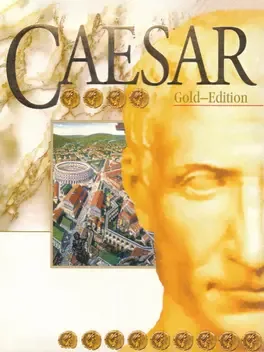
Caesar: Gold Edition contains: - Caesar - Caesar II - Sneak preview of Caesar III
Could be interesting

TransOcean - The Shipping Company is your ticket to the world of gigantic ships and transnational transport empires. Build a mighty fleet of modern merchant ships and conquer the seven seas.

Design, build and manage a giant shopping center. Open shops, supermarkets, restaurants, movie theaters, bowling alleys and more. Hire and manage the best staff for the job and milk your customers for all they're worth!

Startup Company is a business simulation sandbox game where you’re the CEO of a new company. Your job is to build your very own website and compete against the largest tech giants on the planet!

Mashinky is a transport strategy game about trains. The goal is to create your own transport empire on a procedurally generated map. It’s a unique blend of realistic graphics combined with an isometric construction mode and board game-like rules.
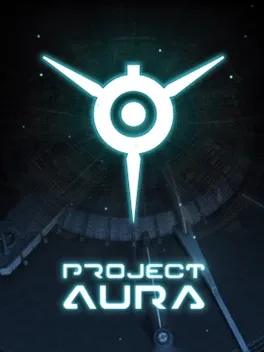
Project Aura is a simulation/strategy videogame where you take control of a colony of climate disaster survivors. In the near future, humans will face the drastic consequences of climate change. Forced to take refuge in vital reserves using cryo-preservation, they await a second chance. At the end of the 21st century, humans, finally aware of the great climate disaster, dedicated their efforts not on preventing the inevitable crisis, but to ensure the survival of the species itself. In this endeavor, they embarked on the construction of a network of cities on the sea, resistant to the hostile atmosphere. Overtaken by the events and extreme food shortage, they built ultra-secret shelters that would support them in hibernation, to be awakened in a more favorable situation.
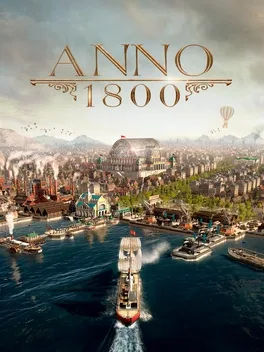
Anno 1800: Lead the Industrial Revolution! Welcome to the dawn of the Industrial Age. The path you choose will define your world. Are you an innovator or an exploiter? A conqueror or a liberator? How the world remembers your name is up to you.

Construct and design buildings for optimal working conditions. Hire people to design and release software, so you can defeat the simulated competition and take over their businesses. Manage and educate your employees to make sure they are skilled and satisfied with their job.
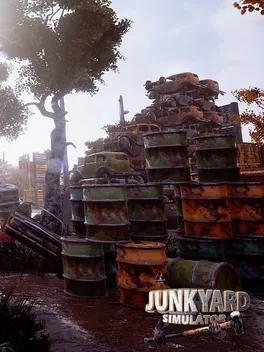
In Junkyard Simulator you play as owner of scrap yard, which with his own hands is trying to create the largest junkyard in the area. The way you do it depends on your decision! Do you want to manually search and collect the best scrap?

In Imagine Earth, players must protect and nurture a fledgeling space colony while wrestling against the forces of corporate greed and climate change. Establish trade, research new technologies, form alliances and wage economic warfare in a real-time battle for galactic survival. Features: Boldly Go: Imagine Earth is a real-time planet simulation and a build up strategy game. Your job as a space colony manager is to explore distant planets, build up profitable colonies, and trade resources into space. Many ways to play: A multi-planet story campaign, ‘competition’ mode with five enemy factions, ‘free play mode with endless procedurally generated challenges, and a Planet Editor with custom building and terraforming. Hold the line: Use tower defence mechanics to protect your colony from invading aliens, marauding space pirates, and swarms of locusts. Hostile takeover: Form alliances with other colonies and intergalactic traders, or wage crafty economic warfare to secure total financial dominance for your planet. Carbon footprint: Earth has been destroyed by an ecological collapse - will your new home go the same way? Keep your worldwide emissions to a minimum, or else suffer rising sea levels, freak weather events, and more.

In Urban Empire you take control of a mayoral dynasty and lead your city and people through 200 years of history. Establish infrastructures, plan city districts, debate political decisions at the town council, bribe or blackmail your opponents, empower the democratic rights of your people or ignore them and reign supremely by yourself – the decision is yours! Urban Empire is a ‘City Ruler’, pioneering a new breed of strategy game that combines city builder features with political scheming and adds profound social and historical events into the mix, creating a whole new gameplay experience where players must employ strategic planning and political savvy to successfully grow their cities in their role as Mayor.





